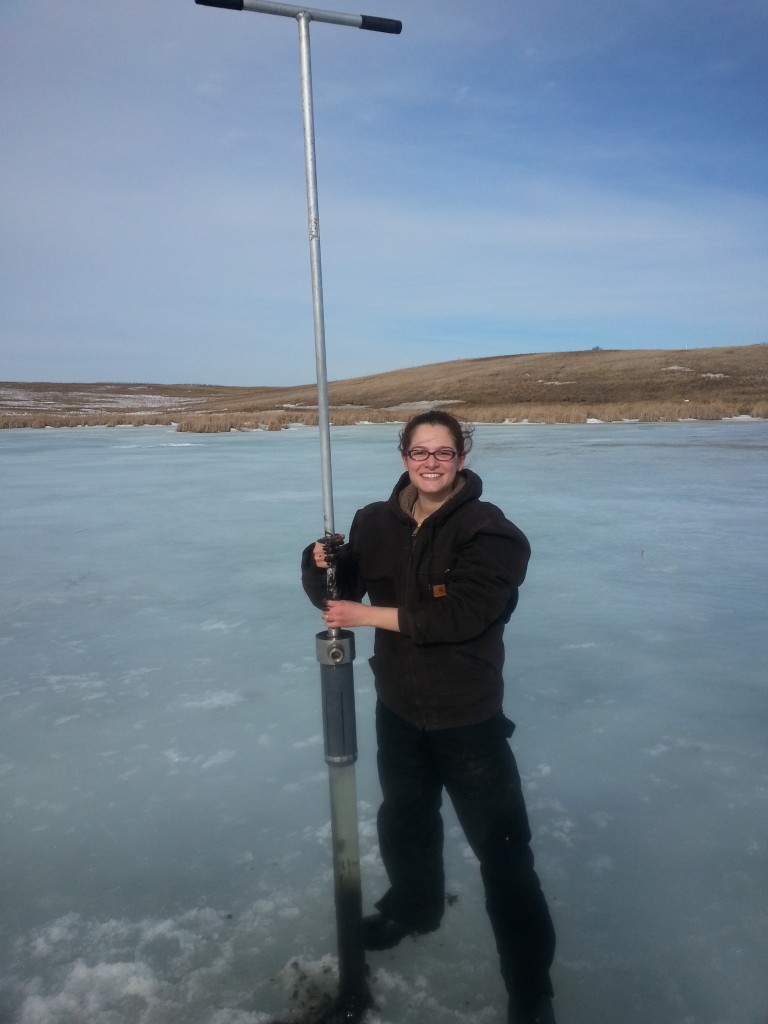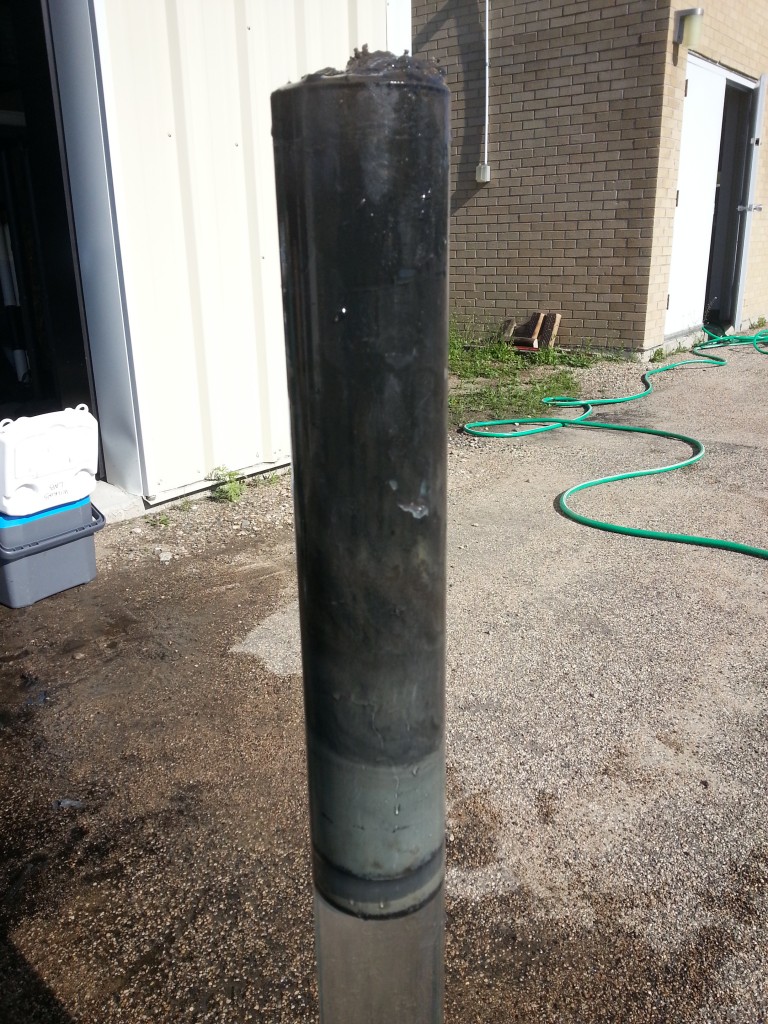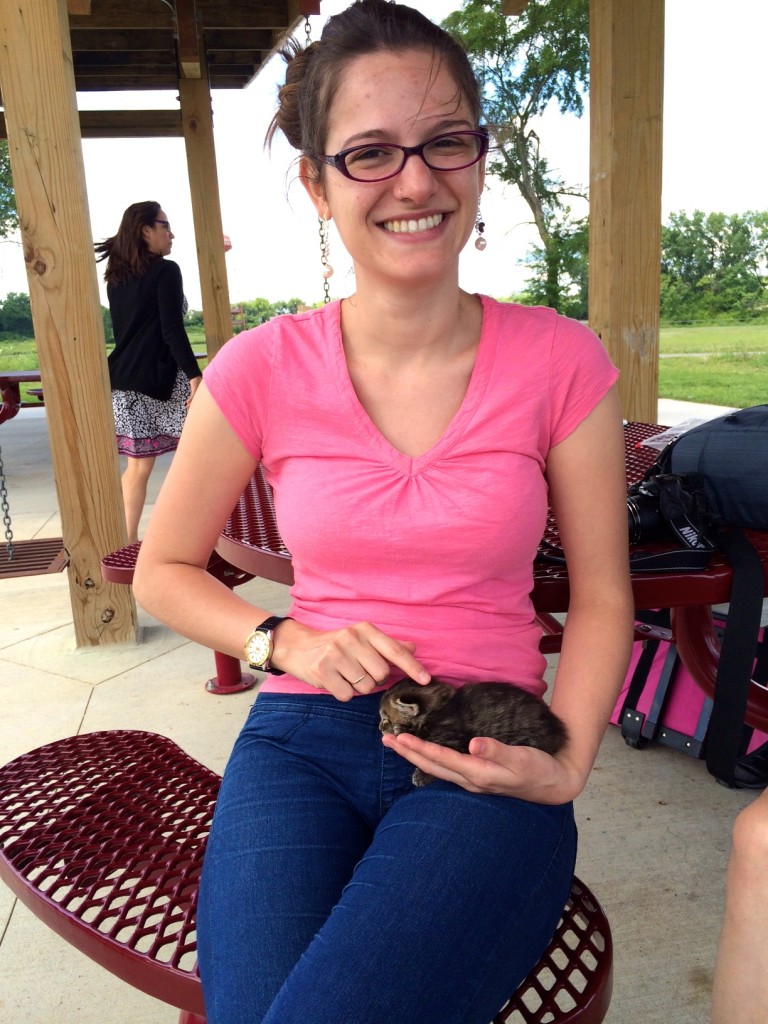Time for a photo-dump from some recent trips up to Jamestown, North Dakota to sample prairie pothole lakes. We’re collecting sediment cores from a number of lakes at the USGS Cottonwood lakes site to investigate how elevated concentrations of carbon and sulfur species affect methane dynamics. Paula Dalcin Martins is the main researcher on this project.
Posts
Expansion of domain Archaea
While there has been increasing awareness of candidate phyla within domain Bacteria, the Archaea are even more poorly characterized. Our paper led by Cindy Castelle (UC Berkeley) has just been published in Current Biology, describing research that used shotgun metagenomics to reconstruct archaeal genomes from groundwater samples recovered at Rifle, CO. The results have illuminated previously unknown members of domain Archaea, and allowed inferences to be made about functional roles for these microorganisms.
Paper is available here
Wilkins, Wrighton labs go bowling, no fatalities
Last week the local Columbus bowling scene was treated to the sight of 15-or-so of the worst bowlers even to grace a bowling alley. Unsurprisingly, they were all from the Wilkins and Wrighton labs, on our Christmas outing. The sole exception was Lindsey Solden, who had promised to bring her own bowling ball, but somehow got cold feet at the last moment.
Defying the urge to use the bumper lanes, we dispatched gutter-ball after gutter-ball. As insanity took over the minds of some players (PI Wrighton), more extreme and unique bowling methods were employed. Nothing helped. Finally, after beer, pizza, and thumb blisters, we departed, safe in the knowledge that professional bowling would not be troubling any of our scientific careers any time soon.
ICDP/DCO deep drilling workshop
I just got back from a workshop organized by Tom Kieft (New Mexico Tech) and TC Onstott (Princeton), and hosted by the International Continental Drilling Program (ICDP) and the Deep Carbon Observatory (DCO) in Potsdam, Germany. Topics of discussion were suitable locations for an impactful terrestrial ‘deep biosphere’ drilling proposal, viruses and fungi in the deep subsurface, and methods and protocols for successful deep terrestrial biosphere investigations. Here’ the group photo below:
New research published – stressed Desulfovibrio….
Some research has just been published from the Wilkins lab that looked at the metabolic and physiological response to elevated CO2 pressures. Such environments might be encountered in the deep subsurface where CO2 sequestration has been suggested as a technique for ‘locking up’ CO2 emissions, rather than releasing the gas to the atmosphere. We used a range of techniques in this study, including high-pressure batch culturing, novel high-pressure NMR, electron microscopy, and RNA-Seq to track how Desulfovibrio vulgaris responds to combined pressure and CO2. The results? Well, the bug doesn’t like that stress at all. Metabolism was generally inhibited even at low CO2 pressures, although high N2 pressures had no inhibitory effects. These results indicate that deep subsurface CO2 sequestration would have the potential to greatly inhibit the activity of some key microbial groups in the deep biosphere. Publication link below:
Wilkins MJ, Hoyt DW, Marshall MJ, Alderson PA, Plymale AE, Markillie LM, Tucker AE, Walter ED, Linggi BE, Dohnalkova AC and Taylor RC (2014) Front. Microbiol. 5:507. doi: 10.3389/fmicb.2014.00507
Mackenzie presents her data at the Undergraduate Research Forum
Undergraduate researcher Mackenzie Lynes presented her work on isolating sulfate-reducing bacteria from prairie pothole lakes today at the Undergraduate Research Forum. Mackenzie started working in the lab at the start of the summer break, and has already accumulated an impressive number of anaerobic enrichment bottles and tubes….
Deep terrestrial sampling perspective published
Back in February, Kelly Wrighton, Paula Mouser, Dave Cole, and myself organized a workshop to discuss trends and future challenges in sampling the deep biosphere, in support of an NSF grant to investigate the biosphere of deep shale materials. The workshop was a success, and recently the publication arising from this effort came online. Check it out here:
Trends and future challenges in sampling the deep terrestrial biosphere | Frontiers
Summer picnic for the Wilkins and Wrighton labs…now with extra kittens
Yesterday was a chance to get outside and have a summer afternoon picnic. The Wilkins and Wrighton labs banded together at Scioto-Audebon metro park for food, fun, drink….and 3-week old kittens? The grounds keeper at the park had found two kittens abandoned in a cardboard box. He made the (correct) decision that if he brought them over to our group they’d probably find a home…
Sampling Ohio groundwater
The geology of Ohio plays a significant role in controlling groundwater quality. In many regions of southern Ohio, glacial outwash (the material that flows out from glaciers during melting) carries a huge amount of sediment material. This debris has buried many valley floors during previous glaciated periods, and is rich in iron minerals. These iron substrates make an ideal electron acceptor for microbial respiration…..long story short, many aquifers in southern Ohio contain elevated concentrations of soluble iron (Fe2+).
In collaboration with the Ohio EPA, we’ve just initiated a sampling effort in some of these aquifers. Yesterday we collected biomass from three wells in Athens county, Licking county, and Greene county on 0.1 and 0.2 micron filters. We’ll be extracting DNA and RNA from these filters to get an idea of microbial community structure and function through metagenomics. Hopefully these studies will shed light on the processes responsible for elevated iron (and other metals) in Ohio aquifers
Online summer environmental micro seminar series
Jen Biddle (U. Delaware) and Cameron Thrash (LSU) have organized a great summer online seminar series, via Google hangouts.
I spoke today on Rifle-related research, and my talk is archived here
Future speakers include Deric Learman (CMU), Daniel Bond (U. Minnesota), Kelly Wrighton (OSU), Rachel Poretsky (U. Illinois), and Karrie Weber (U. Nebraska). More details are here, and you can also follow details via the twitter account AllTheLittleThings





























